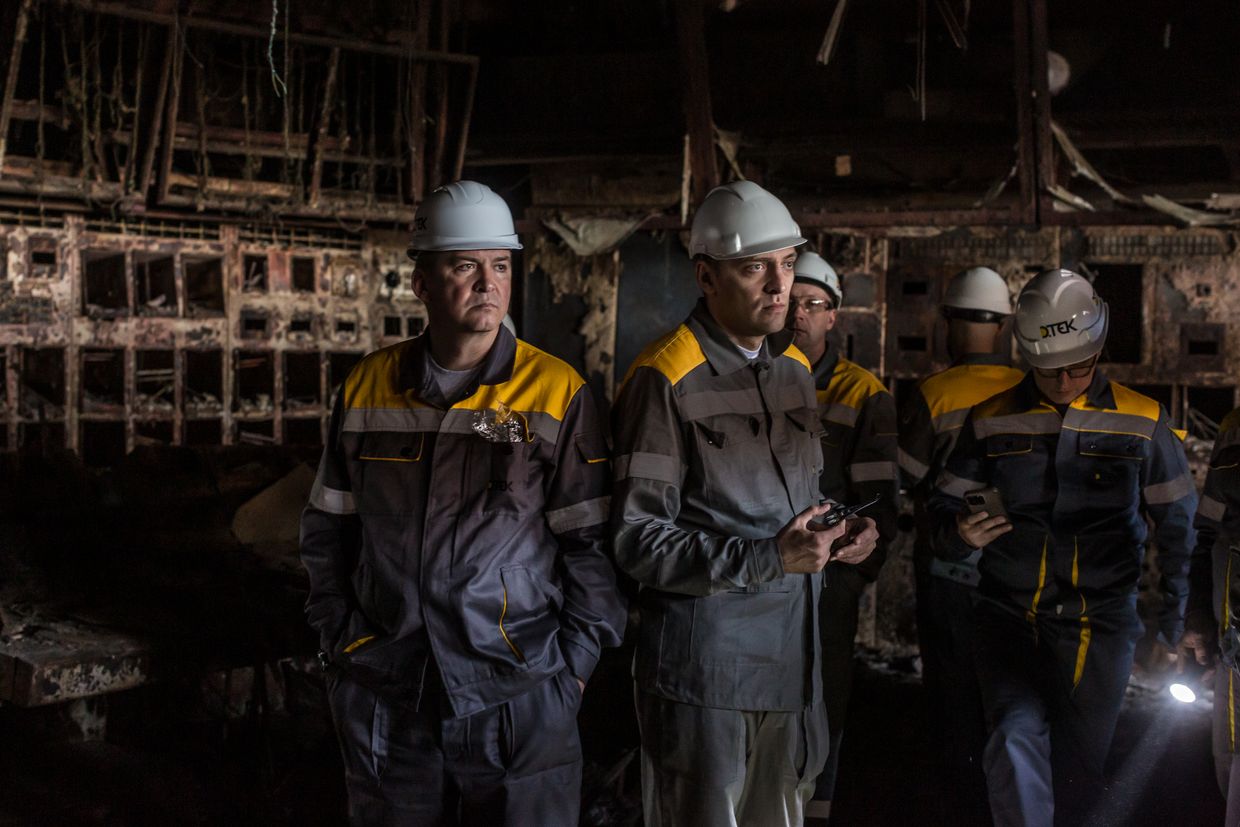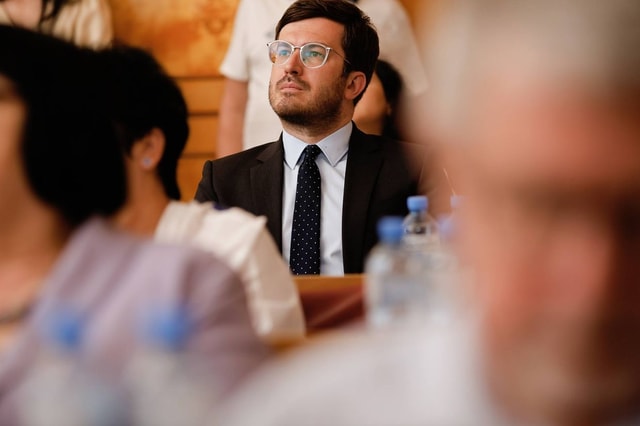Opinion: Key takeaways from the European Parliament elections for Kyiv

European People's Party President Manfred Weber applauds European Commission President Ursula von der Leyen after a speech during the European Parliament elections in Brussels, Belgium, on June 9, 2024. (John Thys / AFP via Getty Images)

Dmytro Tuzhanskyi
Director of the Institute for Central European Strategy
The 2024 European Parliament elections nearly slipped off Ukraine's radar. At the time, Ukraine's primary focus was on preparing for the Ukraine Recovery Conference and the peace summit in Switzerland. However, the resultant compositions of the European Parliament and the European Commission will play crucial roles in the organization’s “big bang enlargement” and EU assistance for Ukraine amid Russian aggression. The election results demand close attention from Kyiv.
Ukraine has been an important topic in this European election campaign and will continue to be so in the future. So, what do the 2024 European Parliament election results mean for Ukraine, and what should Kyiv focus on?
While right-wing forces gained ground and liberals lost significantly, there was no major "right turn" in the EU. The landslide victory of the European People's Party (EPP) suggests a stable centrist political course for Europe.
Despite the significant challenges Europe faced since 2019 – including Russian aggression, the COVID pandemic, record inflation, supply chain disruptions, and a powerful migration wave from Ukraine – the political landscape remained relatively stable.
Many in Ukraine, including experts and politicians, view European extreme right-wing parties as solely pro-Russian and anti-Ukrainian. This oversimplification is a mistake. The key right-wing group in the European Parliament, the Conservatives and Reformists (ECR), includes parties like Giorgia Meloni's Brothers of Italy and Poland's Law and Justice (PiS), which are neither pro-Russian nor anti-Ukrainian.
However, the inclusion of the Alliance for the Union of Romanians (AUR), with its revanchist agenda and pro-Russian rhetoric, in the ECR group is concerning. The potential addition of Hungary's Fidesz, with ongoing negotiations between Hungarian and Italian prime ministers, also raises alarms.
It's important to note changes in Marine Le Pen's rhetoric on Ukraine and Russia during this campaign and the exclusion of Alternative for Germany (AfD) from the Identity and Democracy group, which were likely motivated by electoral and coalition considerations.
Kyiv must understand these trends in the European far-right and seek opportunities to influence their stance on Ukraine and Russia. The Kremlin and actors like Hungarian Prime Minister Viktor Orban are continuously trying to shape these agendas.
Despite the apparent right-wing surge, it is less noticeable in Central Europe, Ukraine's western neighbors. The strong performance of pro-Western parties like Tusk’s Civic Coalition in Poland, Progressive Slovakia, and Hungary's TISZA party demonstrates the resilience of pro-Western positions on the EU and NATO’s eastern flank, bolstered by Ukraine's steadfastness against Russian aggression.
Meanwhile, it would be naive for Kyiv to take these results for granted. Ukraine must prioritize strengthening ties with its western neighbors, as they are crucial for the logistics of all Western aid to Ukraine and beyond. Learning from the recent Polish border blockade is essential to ensure smooth cooperation and support.
The strong position of the EPP does not guarantee that Ursula von der Leyen will be re-elected as European Commission President. Although the leaders did not agree on her candidacy during the informal meeting on June 17, the bigger challenge will be securing enough votes in the European Parliament for her confirmation.
In 2019, many EPP members did not support von der Leyen, and she had to rely on the votes from Fidesz and the Polish PiS, which she could not count on this time. Her re-election would be ideal for Kyiv, both for continued European assistance and for accession negotiations.
Equally important for Ukraine are the appointments to the newly created positions of European Commissioner for Defense and European Commissioner for Agriculture. Additionally, three other European Commissioners will be crucial for Ukraine in the medium term:
- High Representative of the Union for Foreign Affairs and Security Policy: Although foreign policy in the EU largely remains in the hands of member states, this commissioner’s portfolio includes the Peace Facility, through which Ukraine receives essential military assistance from the EU. The current Prime Minister of Estonia, Kaja Kallas, is frequently mentioned as a candidate for this position and would be an ideal choice for Ukraine.
- Commissioner for Neighbourhood and Enlargement: After five years of Oliver Varhelyi from Hungary holding this office, any change would be beneficial for Kyiv. This role is critical for Ukraine due to the Ukraine Facility, a key instrument for supporting Ukraine's resilience and reconstruction.
- European Commissioner for Energy: This position is vital for three reasons: the destruction of the Ukrainian energy sector, Central Europe's vulnerability due to dependence on Russian energy and post-Soviet energy infrastructure, and the Kremlin’s ongoing attempts to regain its energy influence in the EU through hybrid tactics. A recent example is the issue of the transit of Azerbaijani and Central Asian energy resources to the EU through Russia and Ukraine, aimed at reviving Gazprom.
The final takeaway for Ukraine from these European Parliament elections is that satisfactory results should not make us complacent regarding Russian interference and influence in European politics. If this is seen as a setback for the Russians, they will not accept it passively but will continue to spread disinformation, conduct hybrid operations, and bribe European politicians—all aimed primarily at undermining Ukraine.
Kyiv's task is not only to counter these efforts but to shape European policy to be even more pro-Ukrainian. This means turning the 2030 deadline for a new EU enlargement from a mere political slogan into a concrete reality.
Editor’s Note: The opinions expressed in the op-ed section are those of the authors and do not purport to reflect the views of the Kyiv Independent.
This material was prepared within the framework of the Re:Open Ukraine initiative, which aims to explain Ukraine to its Western neighbors, and its Western neighbors to Ukraine for the sake of successful European and Euro-Atlantic integration.















